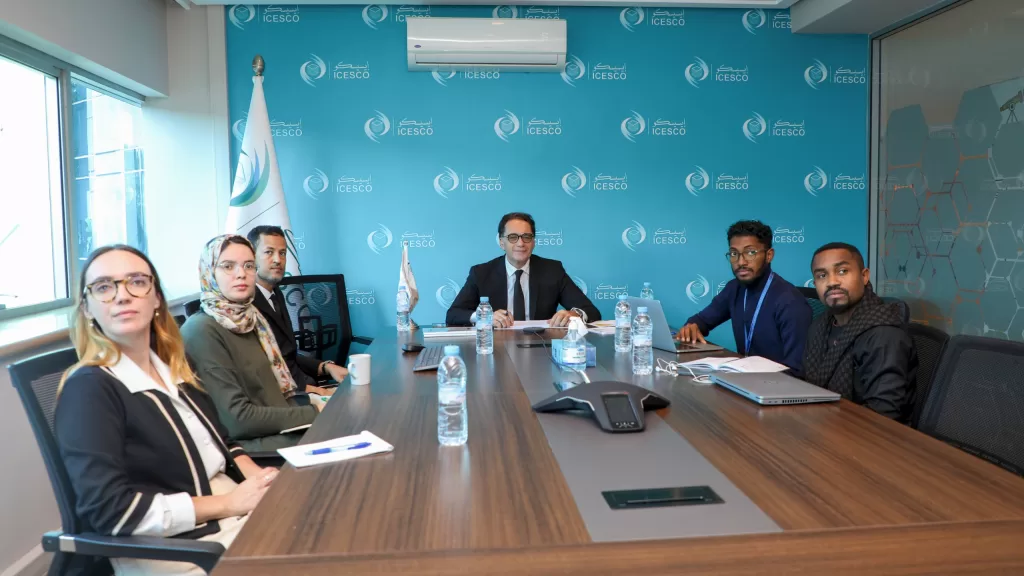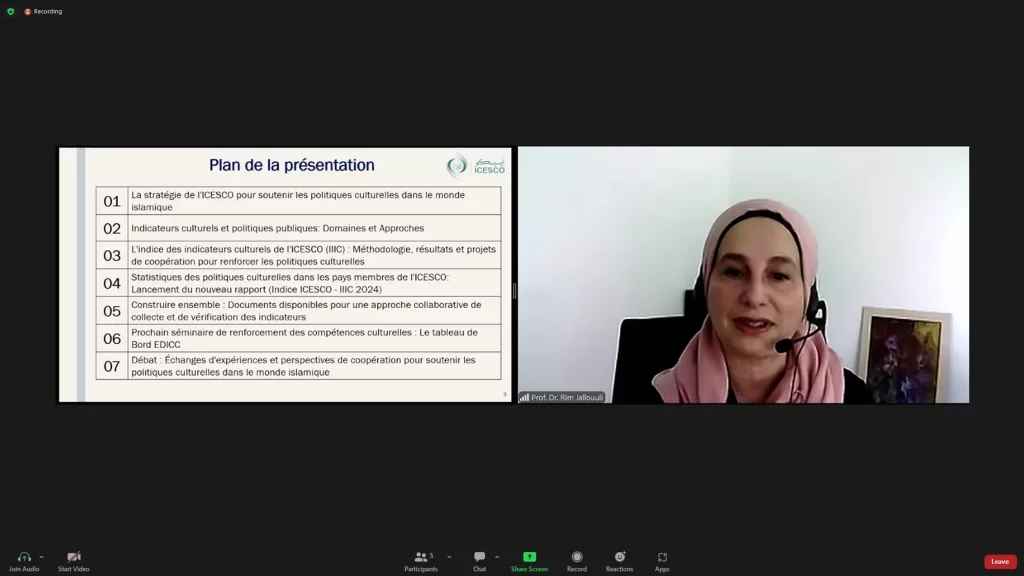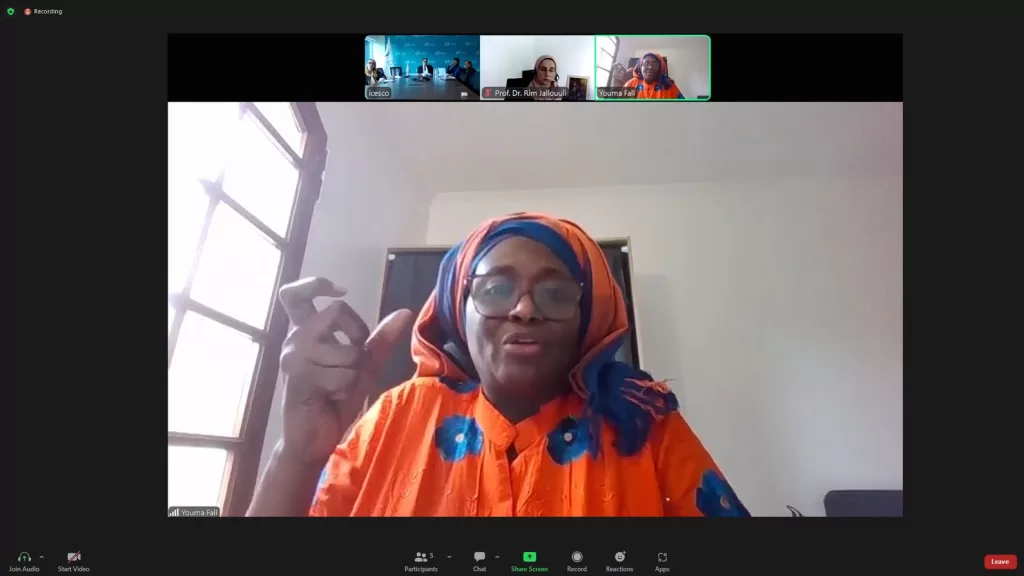
ICESCO organizes two training workshops on cultural policy leadership and AI in music

2 November 2024
The Culture and Communication Sector at the Islamic World Educational, Scientific and Cultural Organization (ICESCO) held two training workshops for a number of experts in the cultural field in ICESCO’s Member States. The first workshop was on leadership in cultural policies, while the second addressed artificial intelligence and creative industries, focusing on sound and music.
Dr. Mohamed Zinelabidine, Head of ICESCO’s Culture and Communication, stressed that the two workshops are being held in cooperation with the National Commissions and a number of international experts, with the aim of building capacities in the field of sustainable development in the Islamic world, especially among the youth to nurture their interest in new areas of digital transformation and alternative economies.

During the first workshop held via video conference, on Wednesday, October 30, 2024, the second of its kind, Dr. Rim Jellouli, ICESCO’s External Expert and Specialist in Cultural Policies, highlighted the importance of ICESCO’s strategy on cultural policies in the Islamic world and cultural indicators in helping the Member States formulate their own visions and strategic orientations, and reviewed a set of reports on this matter. For her part, Dr. Youma Fall, Minister Counselor at the Presidency of the Republic of Senegal, stressed the need to accord due attention to cultural indicators, as they play a crucial role in drafting the strategic vision of countries.

The workshop featured rich discussions and presentations by a number of experts at ICESCO, as well as specialists in the field from the Organization’s Member States.
During the second workshop, Dr. Amine Hammami, ICESCO’s External Expert in the field of digital creativity and digital culture, gave a presentation on the latest platforms and technologies that are reshaping the way we interact with sound and the world of music. He also talked about global best practices in the field, as well as new AI-enriched platforms, and the role of digital tools in pushing the boundaries of creativity in production.

The discussion was opened to participants to ask questions about ethics and intellectual property, and the legal and linguistic challenges facing the use of AI in the field of sound and music production.



